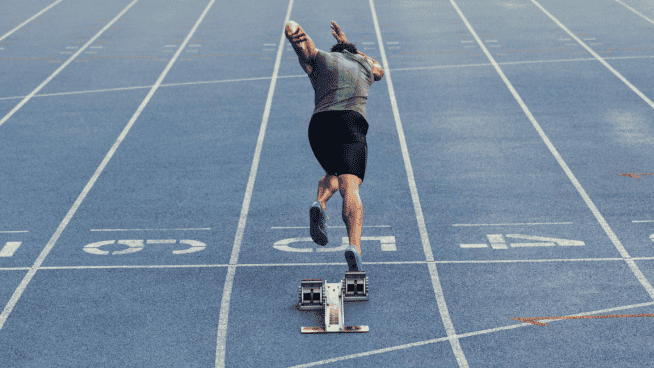The World’s 5 Most Influential Athletes
Last Thursday, TIME released its annual TIME 100, a list of the world’s most influential people. Beyonce took the cover (surprise!), over big names like Barack Obama and Pharrell. Among its 100 people, TIME chose (only?) five athletes to feature in the issue.
Most of the athletes rose significantly in the public eye just last year—exhibiting “excellence perseverance, and a pioneering spirit,” writes Sean Gregory. “And the world [is] watching, enjoying the kind of shared cultural experience that sports, and sports alone, can deliver.”
Here they are in no particular order and why they’re important:
Serena Williams
A tennis icon and enormously influential role model for girls around the world, Williams continues to win match after match. She last made the TIME list in 2010, and is still the no. 1 women’s tennis player in the world. Dwyane Wade writes, “On the court, Serena is a warrior. An aggressive, competitive nature combined with passion, drive and skill make her a formidable and fierce opponent.”
Cristiano Ronaldo
Often deemed the best soccer player in the world, Ronaldo scored his 400th career goal in January. In 2012, he became the first athlete to reach 50 million followers on Facebook, and he was rated by Forbes as having the fifth highest social rank in the world. He hopes to lead Portugal to its first championship in the World Cup this summer.
Jason Collins
Collins is featured due to his game-changing decision to come out last year, becoming the first openly gay athlete in a major American professional sport and trailblazing for men like Michael Sam and Derrick Gordon. While critics might call Collins’ action a media distraction, it was important precisely because it could spur the pro leagues (and any sports environment , really) to foster safe and open environments, where being gay should never be an athlete’s definitive attribute.
Richard Sherman
Sherman raised his profile with his post-game interview following the Seahawks’ Super Bowl victory earlier this year, claiming “I’m the best corner in the game!” Gregory writes:
Sherman’s rant solidified his reputation as one of the brashest and most candid players in the buttoned-up NFL. More important, it sparked a national conversation about race, stereotyping and sportsmanship. When critics labeled the dreadlocked defensive star a “thug,” Sherman, a Compton, Calif.-raised Stanford graduate, engaged the debate, asking if the term was today’s way of calling him the N word? In a heartbeat, Sherman altered the discourse and emerged as the smartest voice in the room.
Lydia Ko
17-year old golf phenom Lydia Ko has already clinched two victories on the LPGA tour. A New Zealander born in South Korea, “[she] is exceptionally talented, mature beyond her years,” writes Annika Sorenstam. “[She is] responsible for sparking increased interest in our sport, not just in her native South Korea and adopted homeland of New Zealand but also among juniors across the globe.”
RECOMMENDED FOR YOU
The World’s 5 Most Influential Athletes
Last Thursday, TIME released its annual TIME 100, a list of the world’s most influential people. Beyonce took the cover (surprise!), over big names like Barack Obama and Pharrell. Among its 100 people, TIME chose (only?) five athletes to feature in the issue.
Most of the athletes rose significantly in the public eye just last year—exhibiting “excellence perseverance, and a pioneering spirit,” writes Sean Gregory. “And the world [is] watching, enjoying the kind of shared cultural experience that sports, and sports alone, can deliver.”
Here they are in no particular order and why they’re important:
Serena Williams
A tennis icon and enormously influential role model for girls around the world, Williams continues to win match after match. She last made the TIME list in 2010, and is still the no. 1 women’s tennis player in the world. Dwyane Wade writes, “On the court, Serena is a warrior. An aggressive, competitive nature combined with passion, drive and skill make her a formidable and fierce opponent.”
Cristiano Ronaldo
Often deemed the best soccer player in the world, Ronaldo scored his 400th career goal in January. In 2012, he became the first athlete to reach 50 million followers on Facebook, and he was rated by Forbes as having the fifth highest social rank in the world. He hopes to lead Portugal to its first championship in the World Cup this summer.
Jason Collins
Collins is featured due to his game-changing decision to come out last year, becoming the first openly gay athlete in a major American professional sport and trailblazing for men like Michael Sam and Derrick Gordon. While critics might call Collins’ action a media distraction, it was important precisely because it could spur the pro leagues (and any sports environment , really) to foster safe and open environments, where being gay should never be an athlete’s definitive attribute.
Richard Sherman
Sherman raised his profile with his post-game interview following the Seahawks’ Super Bowl victory earlier this year, claiming “I’m the best corner in the game!” Gregory writes:
Sherman’s rant solidified his reputation as one of the brashest and most candid players in the buttoned-up NFL. More important, it sparked a national conversation about race, stereotyping and sportsmanship. When critics labeled the dreadlocked defensive star a “thug,” Sherman, a Compton, Calif.-raised Stanford graduate, engaged the debate, asking if the term was today’s way of calling him the N word? In a heartbeat, Sherman altered the discourse and emerged as the smartest voice in the room.
Lydia Ko
17-year old golf phenom Lydia Ko has already clinched two victories on the LPGA tour. A New Zealander born in South Korea, “[she] is exceptionally talented, mature beyond her years,” writes Annika Sorenstam. “[She is] responsible for sparking increased interest in our sport, not just in her native South Korea and adopted homeland of New Zealand but also among juniors across the globe.”















